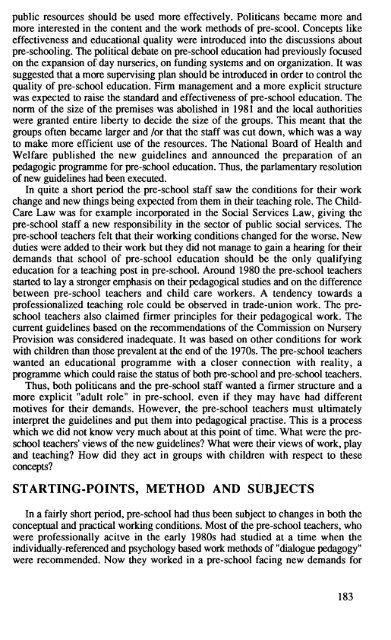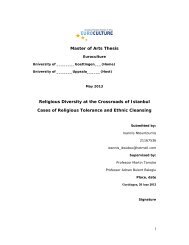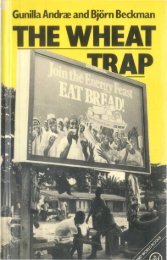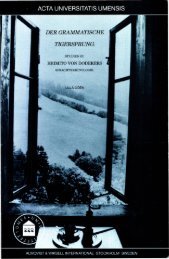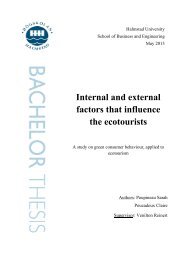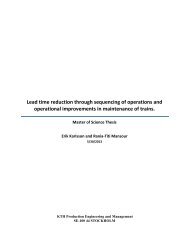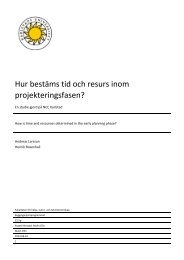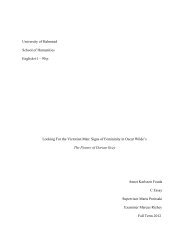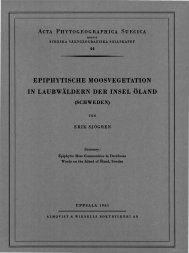fulltext - DiVA Portal
fulltext - DiVA Portal
fulltext - DiVA Portal
- No tags were found...
You also want an ePaper? Increase the reach of your titles
YUMPU automatically turns print PDFs into web optimized ePapers that Google loves.
public resources should be used more effectively. Politicans became more andmore interested in the content and the work methods of pre-scool. Concepts likeeffectiveness and educational quality were introduced into the discussions aboutpre-schooling. The political debate on pre-school education had previously focusedon the expansion of day nurseries, on funding systems and on organization. It wassuggested that a more supervising plan should be introduced in order to control thequality of pre-school education. Firm management and a more explicit structurewas expected to raise the standard and effectiveness of pre-school education. Thenorm of the size of the premises was abolished in 1981 and the local authoritieswere granted entire liberty to decide the size of the groups. This meant that thegroups often became larger and /or that the staff was cut down, which was a wayto make more efficient use of the resources. The National Board of Health andWelfare published the new guidelines and announced the preparation of anpedagogic programme for pre-school education. Thus, the parlamentary resolutionof new guidelines had been executed.In quite a short period the pre-school staff saw the conditions for their workchange and new things being expected from them in their teaching role. The Child-Care Law was for example incorporated in the Social Services Law, giving thepre-school staff a new responsibility in t he sector of public social services. Thepre-school teachers felt that their working conditions changed for the worse. Newduties were added to their work but they did not manage to gain a hearing for theirdemands that school of pre-school education should be the only qualifyingeducation for a teaching post in pre-school. Around 1980 the pre-school teachersstarted to lay a stronger emphasis on their pedagogical studies and on the differencebetween pre-school teachers and child care workers. A tendency towards aprofessionalized teaching role could be observed in trade-union work. The preschoolteachers also claimed firmer principles for their pedagogical work. Thecurrent guidelines based on the recommendations of the Commission on NurseryProvision was considered inadequate. It was based on other conditions for workwith children than those prevalent at the end of the 1970s. The pre-school teacherswanted an educational programme with a closer connection with reality, aprogramme which could raise the status of both pre-school and pre-school teachers.Thus, both politicans and the pre-school staff wanted a firmer structure and amore explicit "adult role" in pre-school. even if they may have had differentmotives for their demands. However, the pre-school teachers must ultimatelyinterpret the guidelines and put them into pedagogical practise. This is a processwhich we did not know very much about at this point of time. What were the preschoolteachers' views of the new guidelines? What were their views of work, playand teaching? How did they act in groups with children with respect to theseconcepts?STARTING-POINTS, METHOD AND SUBJECTSIn a fairly short period, pre-school had thus been subject to changes in both theconceptual and practical working conditions. Most of the pre-school teachers, whowere professionally acitve in the early 1980s had studied at a time when theindividually-referenced and psychology based work methods of "dialogue pedagogy"were recommended. Now they worked in a pre-school facing new demands for183


